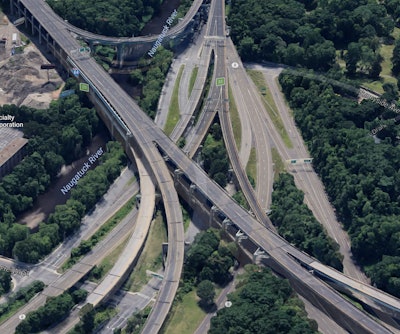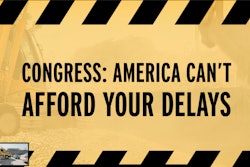 Route 8 and I-84 meet at what is called “The Mixmaster” interchange in Waterbury, Connecticut, is among projects that could be delayed over a lack of funding, according to the state officials. Photo credit: Google Earth data
Route 8 and I-84 meet at what is called “The Mixmaster” interchange in Waterbury, Connecticut, is among projects that could be delayed over a lack of funding, according to the state officials. Photo credit: Google Earth data
With Connecticut poised to delay major highway projects due to a funding shortfall, lawmakers grilled the state transportation commissioner at a public hearing this week on a proposal to bring back tolls to Connecticut roads, a local television station reports.
Questions about where the tolls would go, how much revenue they would generate and how much drivers would pay remained unanswered, according to a report on News 12.
What Connecticut Department of Transportation Commissioner James Redeker did say was that without new revenue, more than $4 billion in highway projects won’t happen.
On January 10, as the funding debate began to heat up, Redeker and Connecticut Gov. Dannel P. Malloy released a list of projects totaling $4.3 billion that they say would be postponed until new revenue is appropriated for the Special Transportation Fund.
“Electronic tolls would be a new tool in Connecticut’s toolbox at a time when our transportation infrastructure needs outstrip our ability to make absolutely necessary investments,” Redeker says.
Toll proposals have failed repeatedly in Hartford, but Republican lawmakers seemed open to at least studying the idea at Wednesday’s hearing, the station reports..
The DOT estimates that a toll study would cost about $10 million. Installing them could cost $300 million. Revenue proposals without tolls include a 7-cent hike in the state’s gas tax or other expenses imposed on commuters.
“The Department of Transportation will be forced to implement unprecedented bus and rail fare increases,” Redeker says in the report. “And service cuts that will impact hundreds of thousands of commuters in Connecticut.”









